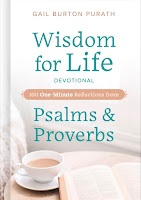We don’t have to be everyone’s close friend. In fact, we’re told to avoid people who could corrupt our character (1 Corinthians 15:33).(1)
But we need to learn to get along with people, especially coworkers and family members.
Family is the highest priority because God placed us in our family for His purposes.
If we are dealing with family members who are physically abusive, addicted to drugs, or involved in criminal or self-destructive behavior, we need to take necessary precautions.(2)
But there is a popular trend that contradicts Scripture and damages relationships: it's the trend to put up a "boundary" instead of working through relationship problems. The claim is that this "protects" us from bad influences, but it actually protects us from maturity. It keeps us from learning how to deal graciously with manipulative people without being manipulated. It keeps us from learning how to ignore unjust criticism and accept legitimate correction.
In truth, the most difficult, unreasonable, and ungodly people are those who avoid the very things that would help them mature. They never learn how to forgive, persevere, and reconcile. See Proverbs 18:1.
It's much easier to shut people out of our lives than to learn to get along with them, but it trains us in selfishness instead of righteousness (Romans 5:3-5).
“If you falter in a time of trouble, how small is your strength!” Proverbs 24:10
💙 Beyond 1-minute for those who want more 💙
(1) If a friend is pressuring us to do evil and they don't stop when we warn them, we may need to cut off contact. Our close companions should be godly people, but that doesn't mean we cut off contact with someone simply because we don't agree with them. See 1 Corinthians 5:9-10. These passages also tell us to seek reconciliation and persevere in difficult relationships: Matthew 5:23-24, Matthew 18:21-22, and Romans 12:9-21.
(2) There are times we should enforce "guidelines" but not boundaries. See Boundaries versus Guidelines. For example, we should help those who can't work, but not those who refuse to work (2 Thessalonians 3:10). We should refuse to be partners in anything ungodly (2 Corinthians 6:14; Ephesians 5:1-20). For more details on the errors in the Boundaries teachings, see Are Boundaries Biblical?




Have you read Dr. Henry Cloud's books on boundaries? I advise you do as boundaries are healthy, essential, Godly, and can be life saving.
ReplyDeleteI have purchased two of Cloud's books and also studied many articles on his website, and I have found that most of Cloud's teachings distort Scripture and promote selfishness. I have a complete collection of reviews of Cloud's books and articles and I warn people not to follow Cloud's advice. Cloud admits that he is most influenced by psychology, not Scripture, and that is clear in his books. If you want to read how Cloud's beliefs compare with Scripture, please click the link above that says, "Are Boundaries Biblical?"
ReplyDelete